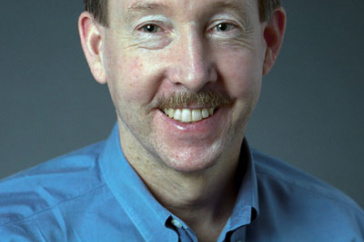Visiting Scholar Discusses "The Origin of the Elements" at UNH Oct. 18

Wick Haxton, professor of physics at the University of California, Berkeley, and Phi Beta Kappa Visiting Scholar at UNH, will discuss "The Origin of the Elements" in a public lecture at the University of New Hampshire Thursday, Oct. 18, 2012.
DURHAM, N.H. - Wick Haxton, professor of physics at the University of California, Berkeley, and Phi Beta Kappa Visiting Scholar at UNH, will peer back to the first instants following the Big Bang to discuss "The Origin of the Elements" in a public lecture at the University of New Hampshire Thursday, Oct. 18, 2012. The lecture, at 4 p.m. in Parsons N104, is co-sponsored by the UNH physics department and theUNH Beta of New Hampshire chapter of Phi Beta Kappa.
"The astronomer uses a telescope to look back in time, gathering the light emitted from the surfaces of distant stars, eons ago. The chemical elements are another important tool for 'cosmic archeology,' allowing us to look back to the first instants after the Big Bang. In this lecture I discuss the puzzle of why there is any matter at all in our universe - why isn't the universe void, consisting only of radiation?" says Haxton. He will describe the formation of the first simple nuclei three minutes after the Big Bang and the incorporation of those nuclei into the first atoms, 300,000 years later.
"The cosmic fossils from these epochs are the abundances of hydrogen and helium, the sea of microwave photons that fills our universe, and the invisible background of neutrinos that nevertheless influence the structures we see in the night sky," he says. "This story is one that ultimately gives us new appreciation of the connections between our lives and the cosmos."
Haxton, a senior faculty scientist at Lawrence Berkeley National Laboratory, taught for 25 years at the University of Washington, where he also directed the National Institute for Nuclear Theory. His research interests include neutrino and nuclear astrophysics, low-energy tests of symmetries and conservation laws, underground science, and many-body techniques in nuclear, atomic, and condensed matter physics. A member of the National Academy of Sciences, he is a fellow of the American Physical Society and a recipient of its Hans A. Bethe Prize.
The Phi Beta Kappa Society's visiting scholar program offers undergraduates the opportunity to spend time with some of America's most distinguished scholars. In visits to 80 colleges and universities, the visiting scholars spend two days at each one, meeting informally with students and faculty members, participating in classroom discussions and seminars, and giving a public lecture open to the entire academic community. The visits are designed primarily for undergraduate participation.
The University of New Hampshire, founded in 1866, is a world-class public research university with the feel of a New England liberal arts college. A land, sea, and space-grant university, UNH is the state's flagship public institution, enrolling 12,200 undergraduate and 2,300 graduate students.
-30-
Latest News
-
December 4, 2025
-
November 26, 2025
-
November 6, 2025
-
November 5, 2025
-
October 24, 2025














































